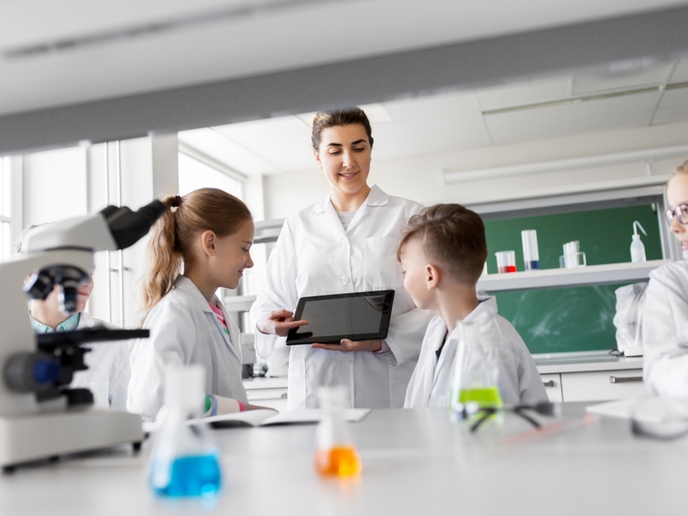Online labs for more engaging STEM education
We’ve all experienced the shortcomings of ‘traditional’ science, technology, engineering and mathematics (STEM) education: learning about a topic from a teacher exposing theory is great, but without practical experimentations we can only scratch the surface of the subject. Experts tend to agree that the solution lies in more engaged instruction. Next-Lab (Next Generation Stakeholders and Next Level Ecosystem for ColLaborative Science Education with Online Labs) brings about its own vision of how to get there by extending the Go-Lab ecosystem, which provides an extensive collection of interactive online (remote and virtual) laboratories and dedicated support tools (learning apps). Together with multimedia material presenting directive information to students, these laboratories and tools generate what the project consortium calls ‘inquiry learning spaces’. “Online laboratories in inquiry mode require students to conceptualise, experiment, and draw conclusions. Unlike hands-on laboratories which often work as recipes students have to follow, students can safely and easily perform free experiments so that they can genuinely build new knowledge by themselves,” says Ton de Jong, Professor of Instructional Technology at the University of Twente and Next-Lab coordinator. “But there are two caveats: students need to enter the inquiry process with sufficient knowledge, and they need support during the inquiry process.”
An ecosystem of 45 apps
Next-Lab’s unique combination of tools solves both problems by combining instructions and inquiry while providing learning support. The ecosystem offers 45 apps to help students come up with hypotheses, create a concept map, design experiments, draw conclusions, etc. It also offers a set of learning analytics apps which provide students with overviews of their learning activities or products, as well as comparisons with the behaviour and products of their classmates. “These learning analytics apps are meant to stimulate students to reflect on their learning,” de Jong explains. Go-Lab has already had tremendous success over the past few years. The ecosystem has effectively become the standard for modern digital inquiry-based learning. It offers the largest set of online laboratories (over 600) in one place and has over 20 000 sessions per month. De Jong estimates that some 120 000 students have used Go-Lab in a real classroom situation, while the worldwide Go-Lab community of teachers keeps growing. Compared to the original Go-Lab, Next-Lab’s iteration comes with a new design, interface and functionalities. “Besides the learning analytics apps, we have added apps for primary education, collaboration facilities, a peer assessment option, a modelling tool and a portfolio facility,” says de Jong. “Under the hood, the existing ecosystem has been restructured to handle a larger number of users, improve system maintenance and meet GDPR requirements. The sharing platform has been reimplemented with up-to-date technology, and the ILS library has been replaced by a modern Graasp API.” Looking at its evolution, it seems clear that Go-Lab is here to stay. The project consortium intends to generate revenues from courses and by offering labs from commercial providers, while the current Go-Lab system will remain free to use. New projects are already running, such as GO-GA, which is introducing Go-Lab to several African countries. Development will continue as well, with the project team already working on making existing apps more intelligent. “We also plan to extend the idea of combining interactive applications other than labs with multimedia material and apps dedicated to other learning approaches such as computational thinking,” de Jong concludes.
Keywords
Next-Lab, Go-Lab, STEM education, learning analytics, inquiry learning, apps, ecosystem



